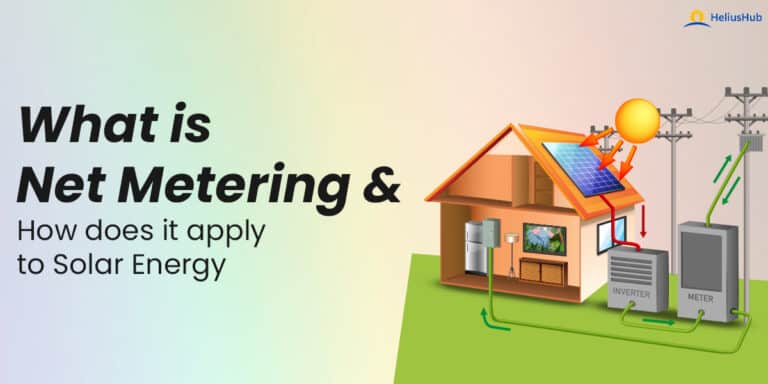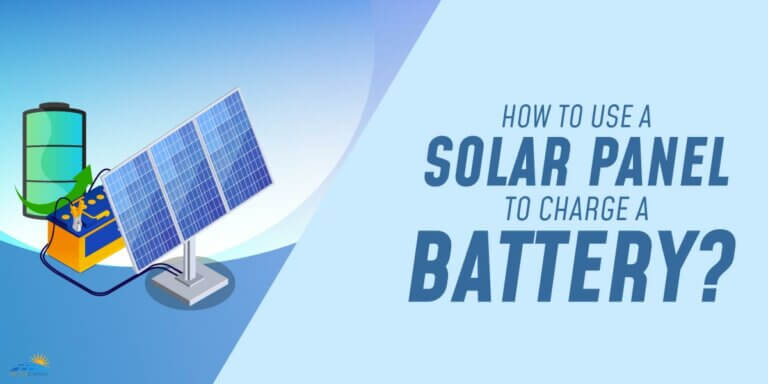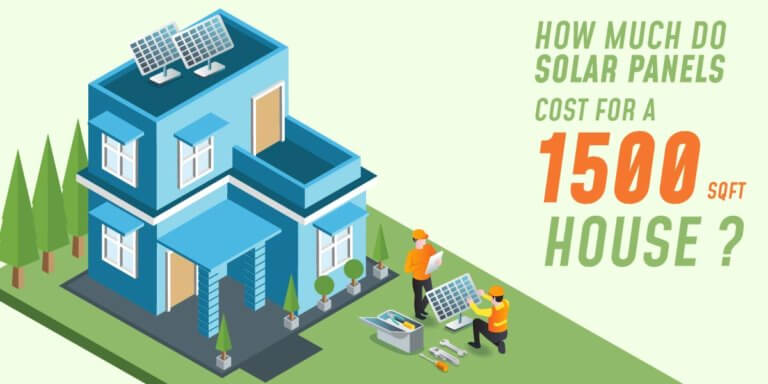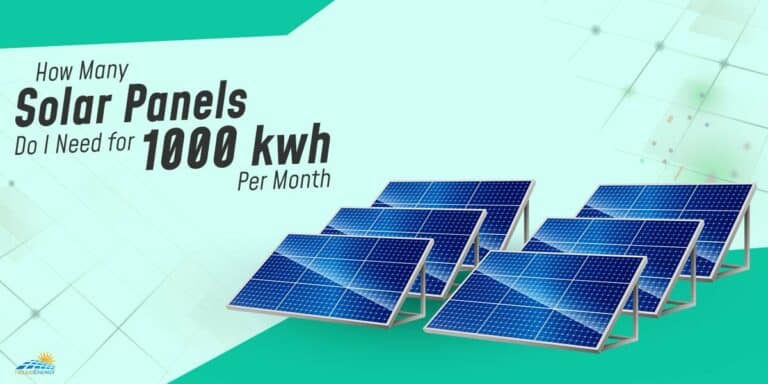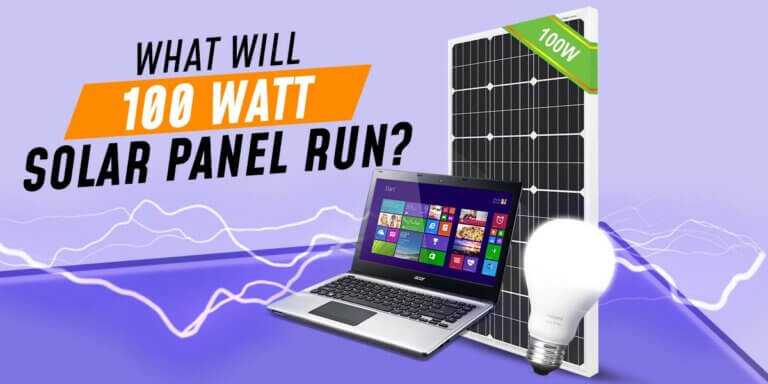Buying A House with Leased Solar Panels | The Good and The Bad!
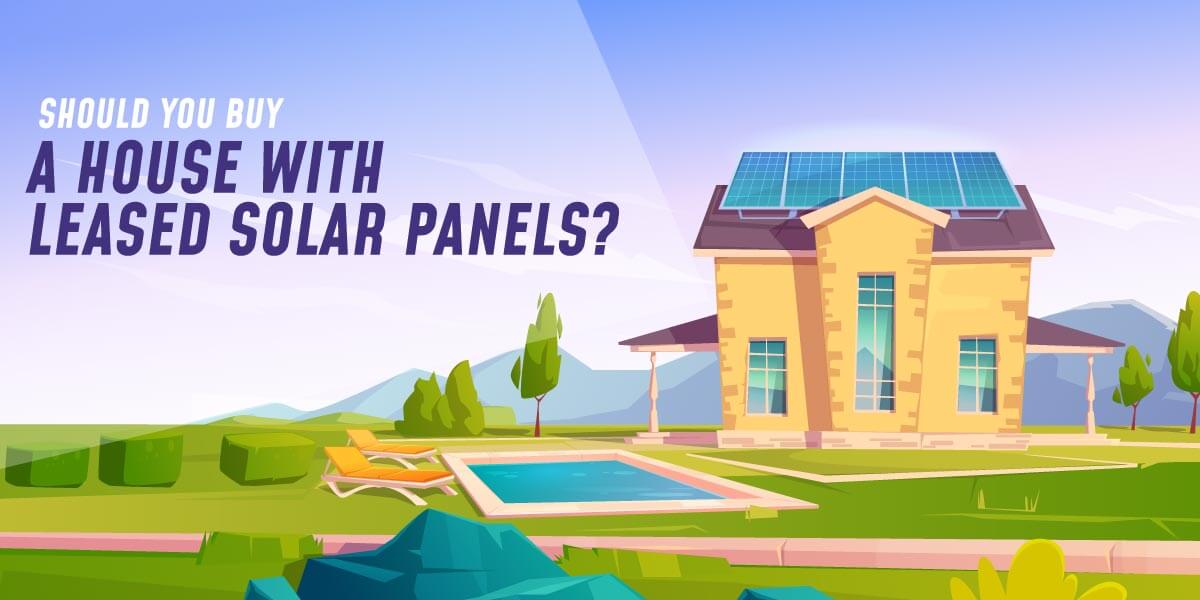
While solar panels are gaining widespread popularity, their expenses are an aspect that can rarely be ignored. You might have good intentions behind wanting solar panels, but not necessarily the means to actually get one. Admittedly, new owned solar panels can burn a hole in your pocket, and might not be the most sustainable of costs, when it comes to household amenities.
Here’s the good news: there exists an arrangement called solar system leasing, wherein you can either buy a home with leased solar panels or lease solar panels by yourself.
Moving into a place with leased solar systems can take off much of the repair-related burdens from your shoulders. You can outline your payments in your solar contract to help you budget your monthly expenses more effectively. Let’s know a little more on solar system leasing.
- 1. What is Solar System Leasing?
- 2. How Long Do Solar Leases Last?
- 3. How do Leased Solar Panels Work?
- 4. What All Can You Do If You Buy A House With Leased Solar Panels?
- 5. Things to Look for When Considering Buying A House with Leased Solar Panels
- 6. Advantages and Drawbacks of Buying A House with Leased Solar Panels
- 7. Verdict | Should You Buy A House With Leased Solar Panels?
What is Solar System Leasing?
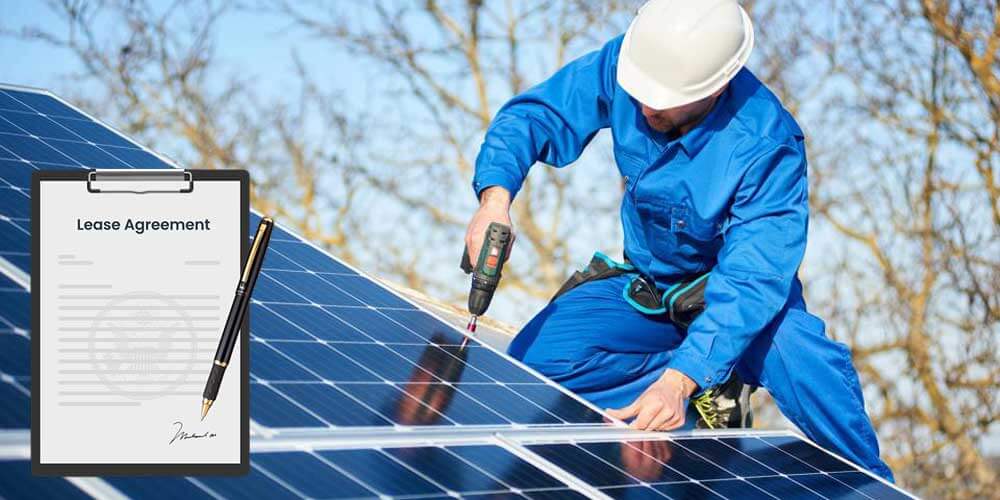
Solar system leasing is a kind of agreement that is manageable for home owners to reap the benefits of solar panels at their house, without having to fret about spending thousands upfront.
If you are buying a home with leased solar panels, make sure the previous owner and their leasing company of choice has installed a solar energy installation.
It is important that both parties agree on a price for the power that is generated from the system. Typically, as part of the leasing agreement, the chosen company installs and maintains the solar system, while the lender makes fixed payments each month.
How Long Do Solar Leases Last?
Typically, solar panel leases last between 20 and 25 years, matching their useful lifespan. So if you are buying a home with leased solar panels that are brand new, it may be decades before the terms of the contract are no longer in place.
The good part is that most solar energy systems can be “bought out” at any point during the terms of the lease, taking into account the fair market value and conditions laid out in the contract.
You may also terminate solar lease contracts early. This may incur some additional cost, depending on the leasing company. Once the lease is over, you will likely have the solar energy system removed at no additional cost.
How do Leased Solar Panels Work?
While buying a home with leased solar panels, note that you will not be considered the system’s owner. The system was in all probability not even included in the price of the home. So, in reality, a third-party company will own the solar installation, and they are at liberty to repossess the solar energy system if payments are ignored.
Here’s one important thing: you won’t be eligible for the federal solar tax credit since the system belongs to the leasing company.
What All Can You Do If You Buy A House With Leased Solar Panels?
1. Take Over the Solar Lease
First off, if you are buying a home with leased solar panels, you can take over the lease from the homeowner, and continue to make the monthly payments for the leftover duration of the lease agreement.
2. Pay Off the Solar Lease
Secondly, you can choose to pay off the lease in full. Of course, the amount will be a significant one, considering leases can last for 20 to 25 years. Due to this very reason, most owners opt to transfer the lease on a monthly basis instead of paying it off at one go.
It is common for the sale of houses with leased solar panels to fall through. Many homebuyers refuse to sign a contract unless they buy out the remaining lease. They worry that the solar panels will not save as much on utility bills or become obsolete.
Things to Look for When Considering Buying A House with Leased Solar Panels
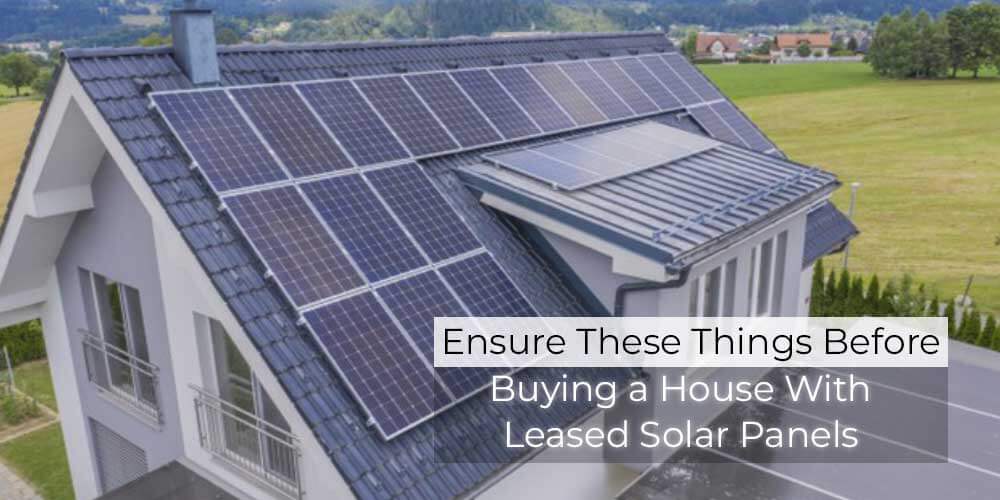
1. Thoroughly Assess All Documents
After getting your hands on the documents related to leased solar panels, make sure you take time to read everything carefully. Check and recheck all complex legalities and make sure you understand everything being laid out. Most importantly, when in doubt, ask! Here are the typical list of documents you need to review:
- The leased solar panel loan’s recent version
- Miscellaneous solar system documents in the home seller’s possession
- Contact details of the leasing company’s representatives
2. Electricity Bill Comparison from Before and After the Lease
It is crucial to ask the previous homeowner for spare copies of their electricity bills. Preferably, check at least a year’s electricity bills to be educated about the variation over time. The longer the duration, the better.
If it helps the case, feel free to inquire about the number of family members utilizing the benefits of the system, and whether they have continued to live there for the full tenure of the bills.
3. Have the Solar System Assessed for Quality & Efficiency
Apart from checking all documents, you must also know the name of the solar company that manufactured the solar energy panels. Knowing the company will provide you information on the available warranties and coverage for the equipment and parts.
Inquire about the solar company that installed the panels as well. Knowing the size and type of solar panel systems is also crucial to determine future electricity bills.
More often than not, homeowners are seen complaining about their electricity bills being too high despite getting a solar array installed. To make sure you aren’t faced with this, it’s best that you educate yourself about assessing a solar panel system for it’s efficiency.
Advantages and Drawbacks of Buying A House with Leased Solar Panels
Pros
With the burgeoning influence and popularity of easy-access sustainable energy, the modern house market has more houses with leased solar panels than ever before. Oftentimes, people are not unwilling to sell their homes owing to their solar lease, so you can reap the benefits of continuing the contract as a new buyer.
Barring the carbon offset of adopting clean and renewable energy, buying a home with leased solar panels may offer the following benefits:
- Low and calculable electricity costs for the leftover period of the lease agreement
- Home purchasing power from potential pool of buyers unconvinced by complicated lease agreements
- No future maintenance costs or concerns, since everything is taken care of by the lessor
Cons
On the flip side, buying a home with leased solar panels adds an additional consideration to the already overwhelming experience of purchasing a home.
Due to this, many house hunters will not even consider buying a home with leased solar panels simply to avoid more potential headache.
Barring the extra bit of paperwork, the whole experience may also involve:
- Potential transfer costs if the contract mandates so
- Elevated monthly payments for low-electricity users
- More credit check and miscellaneous potentially disqualifying measures
Verdict | Should You Buy A House With Leased Solar Panels?
Here’s the final takeaway: if you are not scared to put in a little more effort to ensure a smooth transition, the option of buying a house with solar panel lease can be a relatively painless cost-saving process. Sure, renting solar panel systems might not always be on a house hunter’s agenda, but lowered electricity bills, emission-free energy, and favorable monthly payments can be reasons to convince them otherwise!

